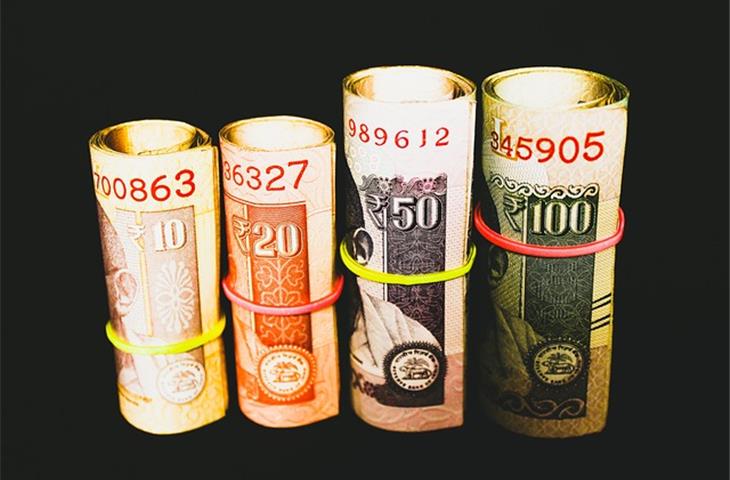Presently, the prevailing exchange rate for one Euro (EUR) to Nepali Rupees (NPR) equates to [insert the present rate here]. This fluid rate proves pivotal for individuals and corporations engaging in international commerce, tourism, and investment ventures within Nepal. Let us examine four primary needs pertinent to this rate and analyze the repercussions it imposes to diverse facets of the interplay between EUR and NPR exchanges.
1. Travellers' Currency Conversion Prerequisites

Prioritizing a holiday in Nepal necessitates thorough examination of the exchange rate between the Euro and the Nepali Rupee. Travellers are advised to secure the most beneficial exchange rate to optimize spending power. This entails scrutinizing current rates, comprehending volatility potential, and selecting opportune moments for currency conversion to maximize returns.
2. Importers and Exporters' Profitability

For enterprises engrossed in global trade, the exchange rate directly influences profitability. An advantageous rate can catalyze augmented profits, whereas an unfavorable rate can precipitate losses. Importers are obligated to remain alert regarding the exchange rate to guarantee procurement of goods at competitive prices, whilst exporters must contemplate the rate when establishing product prices.
3. Investors' Decision-Making Procedure

Investors contemplating investment opportunities in Nepal must regard the exchange rate as a fundamental element of their decision-making procedure. A robust Euro can yield substantial gains upon conversion to NPR, yet it also presents risks if the rate deteriorates. Investors are required to track the exchange rate and comprehend its prospective influence on their investments.
4. Nepali Residents Overseas
Nepalese expatriates frequently remit funds to their homeland. The exchange rate prevalent at the time of transfer significantly influences the sum received in NPR. These individuals necessitate discovering the most advantageous exchange rate to assure their remittances generate optimal positive effects on their relatives in Nepal.
Now, we will elucidate each of these requirements in greater depth:
1. Travellers' Currency Conversion Prerequisites
Tourists embarking on a journey to Nepal ought to contemplate the exchange rate when devising their budget. Although the existing rate of [insert the present rate here] appears advantageous, it is imperative to realize that exchange rates can vary dramatically. Travelers should probe into historical rates and monitor contemporary trends to identify the most propitious moment for currency exchange.
Beyond the exchange rate, itineraries should also incorporate transaction fees and currency conversion services. Certain banks and currency exchange providers might proffer superior rates or smaller fees, potentially economizing expenditure throughout the journey. Furthermore, it is noteworthy that specific regions within Nepal might exhibit morefavorable exchange rates compared to others, hence travelers should conduct due diligence and plan meticulously.
2. Importers and Exporters' Profitability
For companies engaged in international commerce, the exchange rate serves as a vital determinant of profitability. A resilient Euro can stimulate augmented profits when procuring goods from Europe, conversely, a weak Euro can escalate costs. Similarly, a robust NPR can render exported goods more competitive, whilst a weak NPR can diminish profits.
Enterprises must keep a close eye on the exchange rate and adapt their strategies accordingly. This could entail negotiating improved agreements with suppliers, readjusting pricing for exported goods, or diversifying their currency portfolios to mitigate the impact of exchange rate fluctuations.
3. Investors' Decision-Making Procedure
Investors contemplating investment opportunities in Nepal must regard the exchange rate as a fundamental element of their decision-making procedure. A robust Euro can yield substantial gains upon conversion to NPR, yet it also presents risks if the rate deteriorates. Investors must monitor the exchange rate and comprehend its prospective influence on their investments.
To mitigate the risks associated with exchange rate fluctuations, investors might consider diversifying their investments across various sectors and currencies. They might also invest in hedging strategies to shield their investments from adverse exchange rate movements. It is imperative for investors to seek counsel from financial advisors to make well-informed decisions and manage the risks associated with exchange rate fluctuations.
4. Nepali Residents Overseas
Nepalese expatriates residing overseas often remit funds to their homeland to sustain their families. The exchange rate prevalent at the time of transfer significantly influences the sum received in NPR. It is imperative for these individuals to discover the most advantageous exchange rate to ensure their remittances generate optimal positive effects on their relatives in Nepal.
